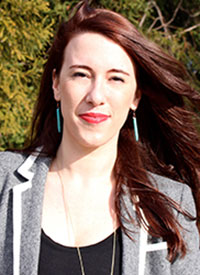
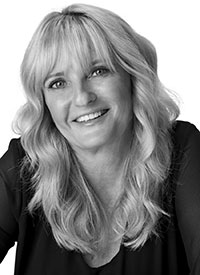
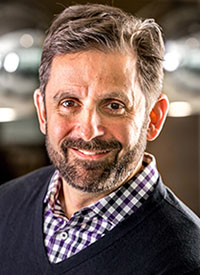
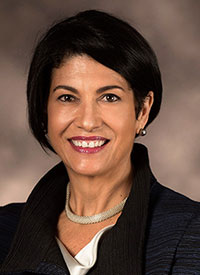
Keynote Speakers

Tuesday, March 19
Mary Jo Madda, Google Creative Strategy Manager
What Skills Will Students (Really) Need to be Successful in 2025 and Beyond?
Abstract: In 2017, CNBC reported that 65% of jobs kids will have don’t yet exist. But, as educators, we are expected to prepare them for that world. So, what do we do? Pulling stories from along the spectrum, from personal experiences in the classroom to tales of what the tech world is craving in its talent, this talk will offer a look into how schools can develop not only hard skills in K-12 students, but arguably what’s more important—soft skills and social capital, all through the lens of equity.
Biography: Mary Jo Madda is currently Creative Strategy Manager for several education + diversity initiatives at Google, including Code Next and Tech Exchange. Previously, she was a Director and Senior Editor at EdSurge, where she wrote and reported on education technology.
Earlier in her career, Mary Jo taught middle school math and science in Houston, Texas and later in Los Angeles, California, where she also served as an administrator, curriculum coordinator, and decathlon coach. Following her years teaching, she was a member of the ScratchED team at the MIT Media Lab (working to create computer science professional development for teachers), worked as an instructional coach with MATCH Charter Schools in Boston, and served as one of four founding Education Entrepreneurship Fellows at the Harvard University Innovation Lab while piloting an educational media startup. She was also a fellow in the Harvard Graduate School Leadership Institute.
Mary Jo has an Ed.M. from the Harvard Graduate School of Education and a B.A. from Northwestern University. She was featured on the Forbes “30 Under 30” list for 2016 for her work in education, and has spoken at venues including Stanford, the University of Virginia, and TEDxChicago.
Wednesday, March 20
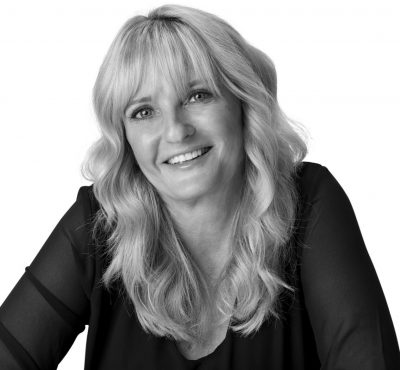
Holly Clark, Director of Innovative Learning at Oakhill Academy
Meet Generation Z
Abstract: Our students are the first real digital natives – born into a world with computers, smartphones and tablets. The problem is they are tech dependent but not tech savvy, and we must teach them the ways in which they can amplify their learning using the tools of technology. This fun and story-filled keynote will look at how we can make three simple tweaks to our instructional practices to better meet their needs and improve teaching in learning in our schools
Biography: Holly Clark is an Education Strategist from San Diego, California. She is the Director of Innovative Learning at Oakhill Academy. She is a Google Certified Innovator, National Board Certified Teacher, and holds an MA in Technology in Education from Teachers College, Columbia University. She has been working with technology integration and 1:1 environments since the year 2000. Presently she consults with schools internationally on building both the culture and strategy to support and inspire innovative teaching- including powerful technology integration and design thinking protocols. Holly has taught in both independent and public schools and is the co-founder of #CaEdChat. She authors a popular education blog: hollyclark.org and gives keynotes to audiences worldwide. You can follow her on twitter @HollyClarkEdu.
In 2017, Holly published her first book The Google Infused Classroom which is available on Amazon.
Thursday, March 21

Bart Epstein, Jefferson Education Exchange (JEX)
Biography: Bart Epstein is President and CEO of the nonprofit Jefferson Education Exchange, and is a Research Associate Professor at the University of Virginia Curry School of Education. In these roles, Bart helps to lead a national movement to support educators and institutional leaders who seek to make better informed decisions about educational technologies.
Friday, March 22
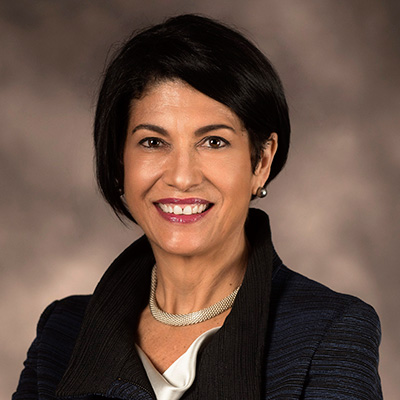
Dr. Lynn M. Gangone, AACTE President & CEO
Notes from the Field: Opportunities and Challenges in Teacher Education
Abstract: As US federal and state policies shift, teacher education finds itself once again at a crossroads. Are colleges of education the weakest link in the preparation of teachers? Do state and federal elected and appointed officials truly understand the innovative work that is occurring in colleges and departments of teacher education? Is our US-based experience unique or are our colleagues in other countries having similar experiences? How can we create and foster strategic relationships to elevate the profession? What are some of the new trends that are impacting our work? How can we harness the power of technology to better educate our students and, in turn, their students? What are OUR obligations as teacher educators to positively impact P-12 education? These questions and more will be explored in this keynote address by Dr. Lynn M. Gangone, President and CEO of the American Association of Colleges for Teacher Education (AACTE). As Dr. Gangone travels throughout the US meeting and speaking with constituents from all aspects of our work, she has a perspective that is unique in the field. Join her in a conversation about the opportunities and challenges in teacher education in 2019 . . . and beyond.
Biography: Dr. Lynn M. Gangone is a seasoned education leader with association, agency, and campus-based leadership experience. As a faculty member, campus senior administrator, association executive, and lobbyist and policy analyst, Gangone brings a unique perspective to her work. She began her career in education working on Carl Perkins Vocational Equity grants, working through the New York State Education Department, and later, New Jersey, developing and delivering PK-12 professional development to teachers and guidance counselors. Later, as vice president of the Maryland Independent College and University Association, she led the association’s academic policy and related lobbying work, with specific oversight of teacher education and education accreditation. She has held faculty appointments at two colleges of education, the George Washington University Graduate School of Education and Human Development (DC) as a visiting professor, and a full professor (clinical)at the University of Denver’s Morgridge College of Education.

